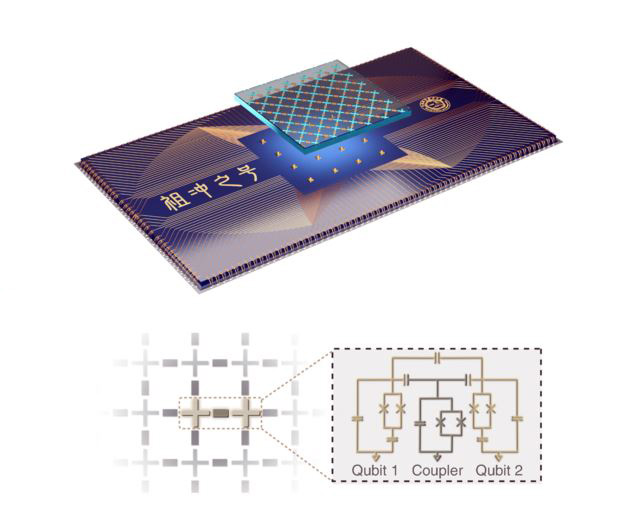A race is underway to develop a quantum computer that can surpass the conventional one supercomputer, and researchers from all over the world are pulling full steam ahead. If scaled to adequate sizes, the quantum computers they represent the biggest step forward in computing for decades, carrying the potential to leave our current machines far behind, but significant obstacles remain.
Now, a team of researchers from China has created a superconducting quantum processor with 66 functional qubits that, when faced with the complex task of sampling, was able to pass even the most powerful supercomputers and complete it in just a fraction of the time. What makes the research so impressive is how it shows a huge leap towards quantum primacy, a turning point at which quantum computers complete a task that is unfeasible for a conventional computer. The research was published in Physical Review Letters.

The team is led by Pan Jianwei from the University of Science and Technology in China, who also produced this superconducting processor and an alternative system that uses photonics, or light. To achieve quantum primacy, the team aimed to use ‘sampling problems’ as its computational task, which includes problems whose solutions are not just singular, but multiple random ‘samples’ along a probability distribution. With such huge potential results, it is possible to create a sampling problem that a conventional computer cannot feasibly solve, but quantum computers can, and thus demonstrate, a quantum advantage.

To that end, Pan and colleagues need to upgrade quantum processors. Quantum computers use qubits to process data, and creating a sustainable quantum system requires quantum processors that include more qubits than is currently possible. The largest quantum processors can currently process about 50 qubits, mainly due to physical limitations on the chip. Pan’s new adjustable superconducting processor, called Zuchongzhi, has 66 functional qubits.
When presented with an extremely complex sampling problem, which researchers estimate is 2-3 times more demanding than previous problems assigned to quantum processors, Zuchongzhi completed it in 1.2 hours. Pan and colleagues expect that the same problem will take 8 years to be completed by the currently most powerful supercomputers.
In this case, the researchers used only 56 qubits for the sampling problem, which is 3 qubits more than the previous claim of primacy by Google. However, even such a small jump requires much more computing power to complete for a conventional computer, hopefully it will solidify their claim of primacy.
Every time researchers claim primacy, they encounter strong skepticism. Such skepticism includes the idea that the most ideal algorithms for the job are not used when conventional computers oppose quantum options, but with such an increase over previous claims, Pan and colleagues hope to fully resolve the debate over whether primacy has been achieved.
So what does all this mean? First, when it comes to sampling problems, it seems that quantum computers are finally significantly better than conventional options. That doesn’t mean they’re still practical – it takes a lot more innovation before quantum computers are used for real tasks, and that probably won’t happen anytime soon. However, there is a strong possibility that for some computer tasks, quantum processors could be the perfect solution and could see use in niche scenarios in the future.
More news: Kingston FURY has launched a high performance PCIe 4.0 NVMe SSD
source: iflscience
China’s quantum computing efforts surpasses the world’s fastest supercomputer